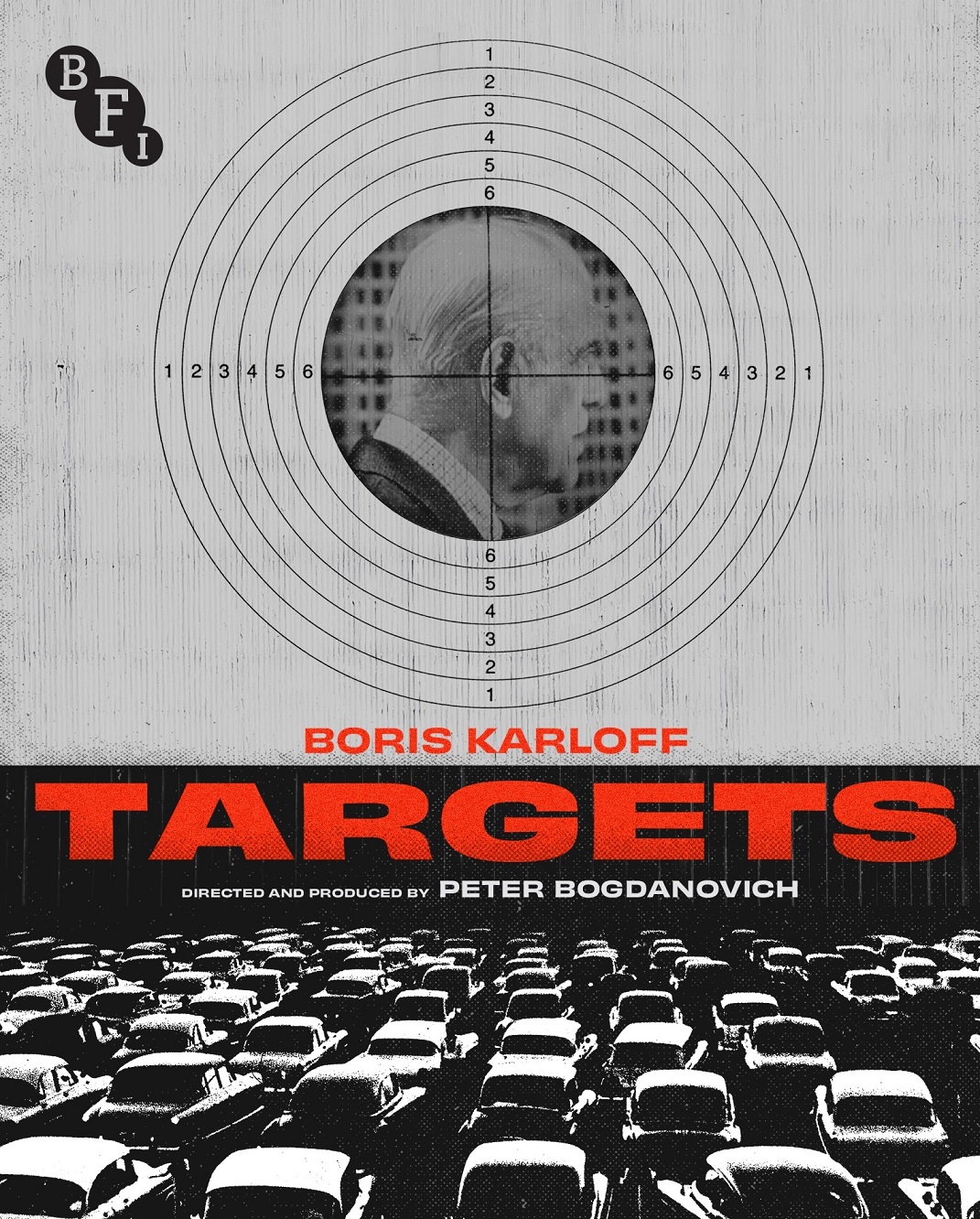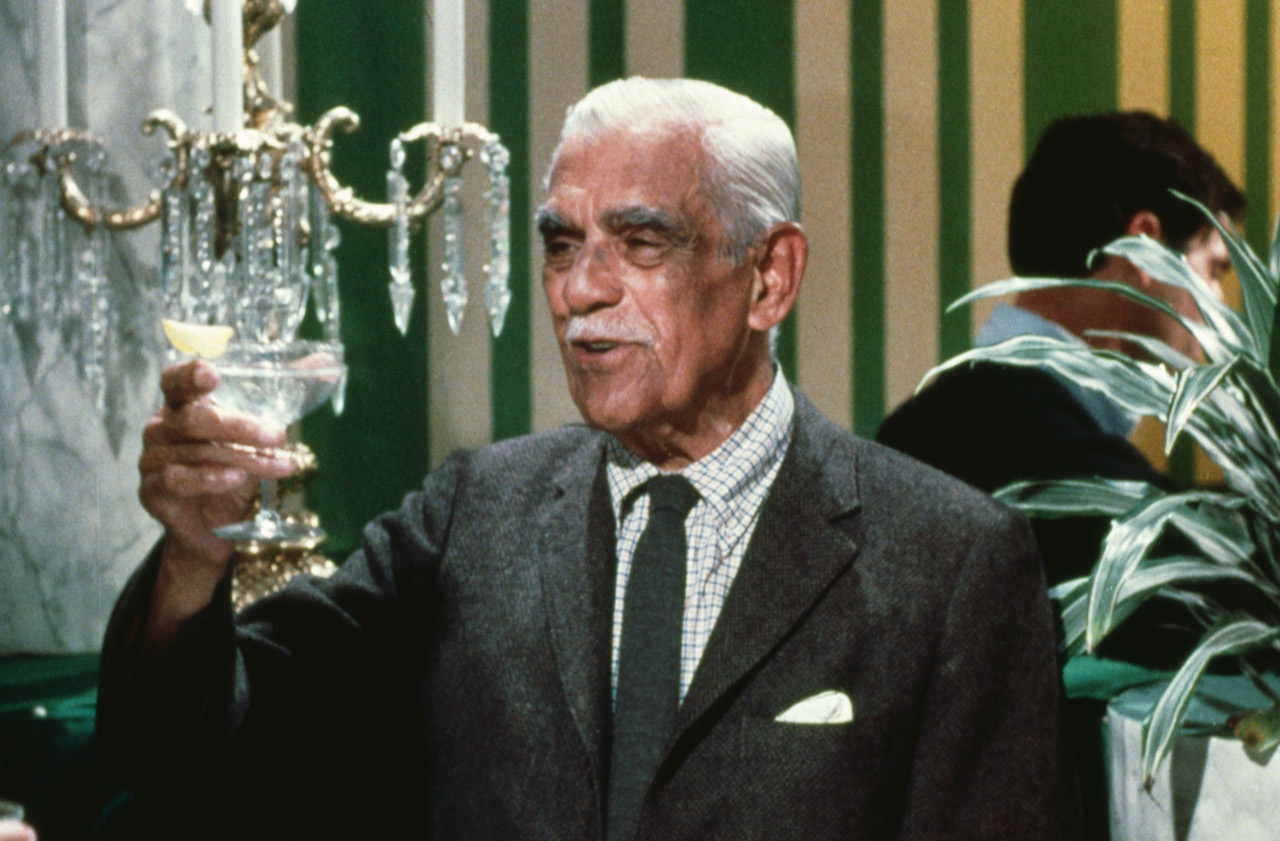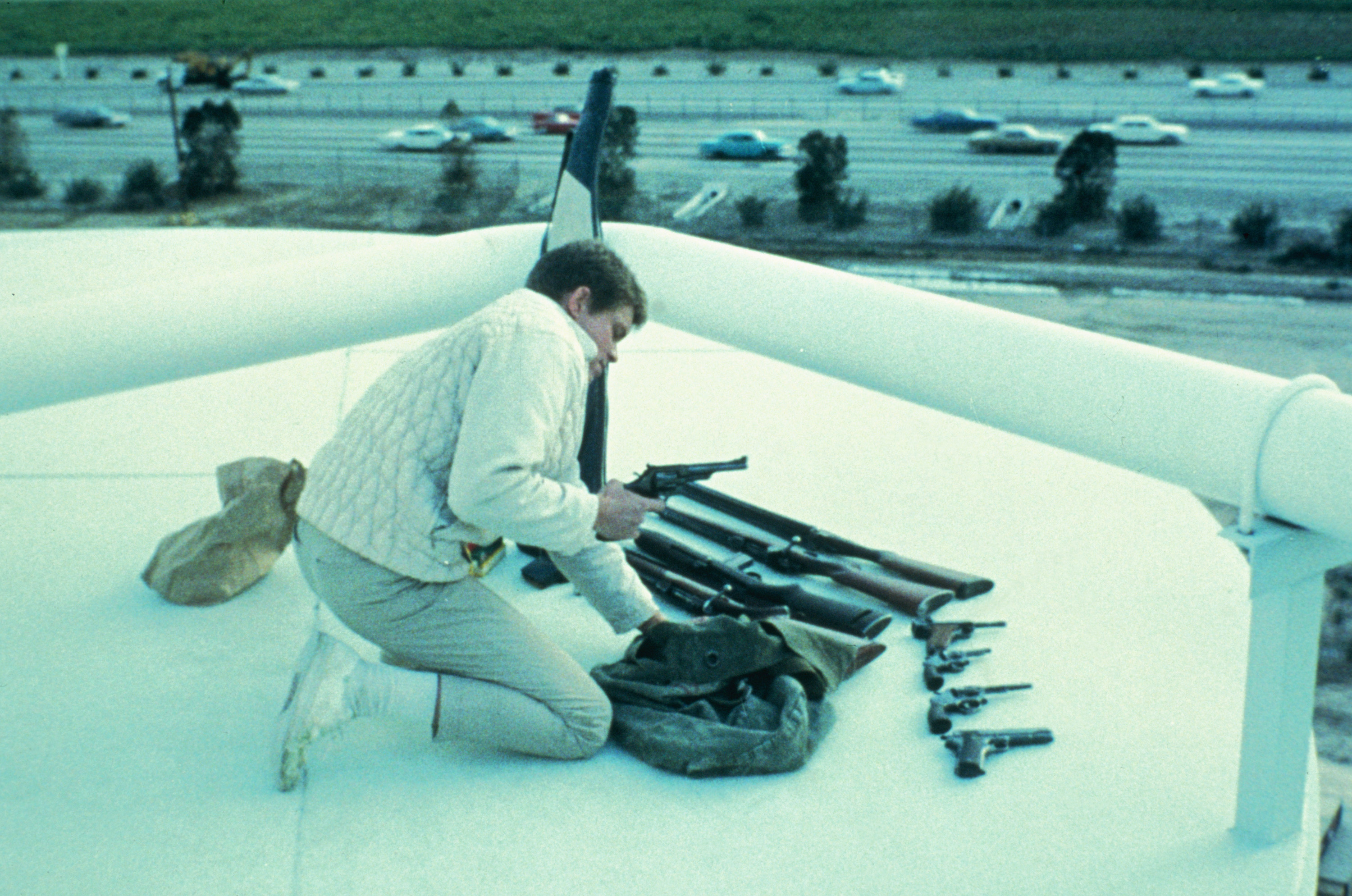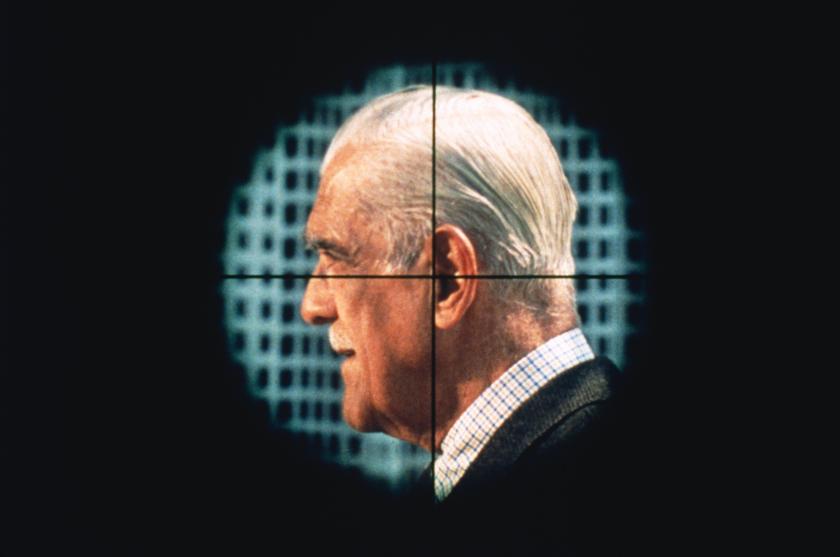Targets (1968), Peter Bogdanovich’s first feature is generally regarded as a great film. And yet, it came out of a mixture of false starts and opportunism. Could it be that its unique quality, the elements which make it stand out in the history of cinema, owed as much as anything else to the randomness that accompanied the movie’s creation?
Bodganovich, a cinephile and writer for the magazine Esquire, had come to the attention of Roger Corman, the genius of low-budget horror and sleaze. After assisting him on a feature, Corman asked the eager young man to make a film with Boris Karloff, who owed the studio two days of filming. He told Bogdanovich he could make whatever film he liked so long as the horror-movie star worked the last two days of his contract. Bogdanovich wrote the script with his wife Polly Platt, with significant input from Samuel Fuller. This is, without doubt, a cinephile’s cinematic debut
 The film combines two parallel stories that eventually come to a common climax. There is a young serial killer, who discovers his crazed vocation with as much illogical accident as Bodganovich got involved in the making of Targets himself. The killings are without motive: the perfectly ordinary young man takes pot-shots at drivers on the freeway. The shooting of the massacre is shot and directed with great brio. There are echoes, with this repeated shooting, the moving victims caught in the telescopic lens of the killer’s rifle, of Michael Powell’s classic Peeping Tom (1960) in which gazing and killing are so disturbingly evoked. Laszlo Kovacs, the director of photography for Targets also shot Easy Rider (1969), another film that calls into question the sunny optimism of 1960s California.
The film combines two parallel stories that eventually come to a common climax. There is a young serial killer, who discovers his crazed vocation with as much illogical accident as Bodganovich got involved in the making of Targets himself. The killings are without motive: the perfectly ordinary young man takes pot-shots at drivers on the freeway. The shooting of the massacre is shot and directed with great brio. There are echoes, with this repeated shooting, the moving victims caught in the telescopic lens of the killer’s rifle, of Michael Powell’s classic Peeping Tom (1960) in which gazing and killing are so disturbingly evoked. Laszlo Kovacs, the director of photography for Targets also shot Easy Rider (1969), another film that calls into question the sunny optimism of 1960s California.
The other narrative strand follows an actor at the end of his career, Byron Orlok, named after the vampire in Murnau’s Nosferatu (1922), brought to wonderful life by Karloff. At the end of a long career, he wants out, and he is pursued by caricature Hollywood producers and a bright-eyed young director, played by Bogdanovich. The film returns on several occasions to Roger Corman’s thriller The Terror – which features Jack Nicholson as well as Karloff himself. There is also a clip from Howard Hawks’s Criminal Code (1931), another Karloff vehicle. The movie history references abound.
 The film’s climax, suggested by Polly Platt, takes place in a drive-in cinema. This is a masterstroke, in which terror on the screen is matched by the terror of the car-bound spectators, who become targets for the serial killer who shoots at them through a hole in the screen. The cars in the drive-in echoes the mass killing on the freeway, once again evoking themes are "scoping", the potential and lethal violence of the gaze, and the cinema.
The film’s climax, suggested by Polly Platt, takes place in a drive-in cinema. This is a masterstroke, in which terror on the screen is matched by the terror of the car-bound spectators, who become targets for the serial killer who shoots at them through a hole in the screen. The cars in the drive-in echoes the mass killing on the freeway, once again evoking themes are "scoping", the potential and lethal violence of the gaze, and the cinema.
Bogdanovich was fascinated by many of the archetypes of American culture – The Last Picture Show (1971), based on a novel by the quintessential chronicler of the American Southwest, Larry McMurtry, focuses on the key links between the American Dream and the movies. Targets, in another key, explores similar territory, including the violence at the heart of the of the nation’s psyche, and connecting it with the cinema.
The film is also an elegy for the old-school monsters and vampires that have haunted cinema from its beginnings. Targets heralds a different kind of horror, some critics have suggested, and yet gun violence is as present in the movies – think the gangster films of the 1930s – as blood suckers and ghouls. It might be said that the gangster films are part of social history, while the monster movies evoke the creatures of the unconscious – that might indeed be the source of the "acting out" that moves serial killers to murder literally. The film climaxes with a neat and resounding resolution, in which Karloff challenges the serial killer, a moment when cinematic dreams, illusions and hard facts collide. Just how Bogdanovich managed to weave so much together, with hardly any budget at all, not much directing experience, remains a wonder. Polly Platt, one of those invisible women of US cinema certainly deserves a mention. She breathed cinema history and culture as much as her husband.
The film climaxes with a neat and resounding resolution, in which Karloff challenges the serial killer, a moment when cinematic dreams, illusions and hard facts collide. Just how Bogdanovich managed to weave so much together, with hardly any budget at all, not much directing experience, remains a wonder. Polly Platt, one of those invisible women of US cinema certainly deserves a mention. She breathed cinema history and culture as much as her husband.
The Blu-Ray edition is newly restored under the suprvision of the director. It's a pity that the BFI, in a relatively long and rich list of bonuses, doesn't include at least an interview about Polly Platt. That would make this edition more remarkable than it is. There is perhaps too much about Boris Karloff, in not particularly thought-provoking inerventions. Still, Bodganovich gets to speak (there is an audio commentary from 2003), and (most of) the genesis of this remarkable film is well told.













Add comment